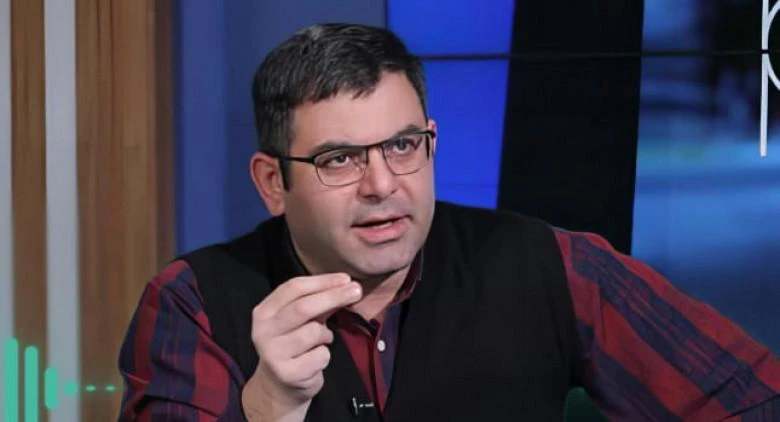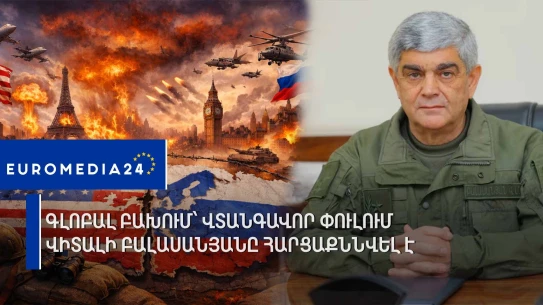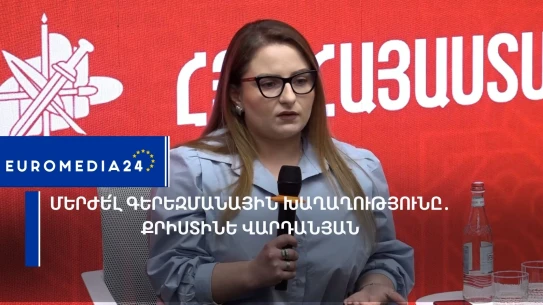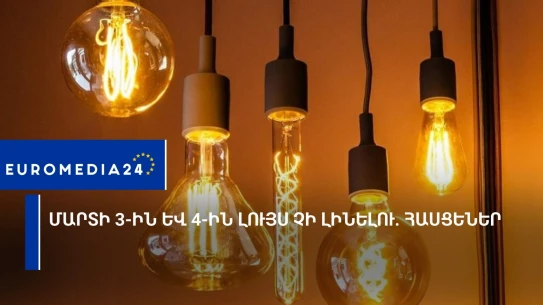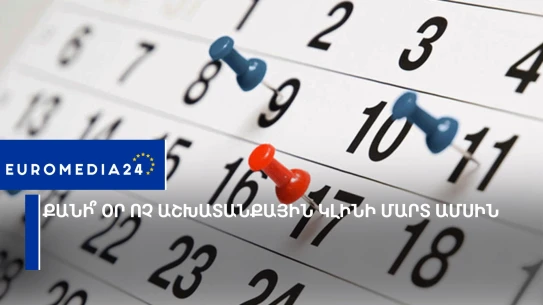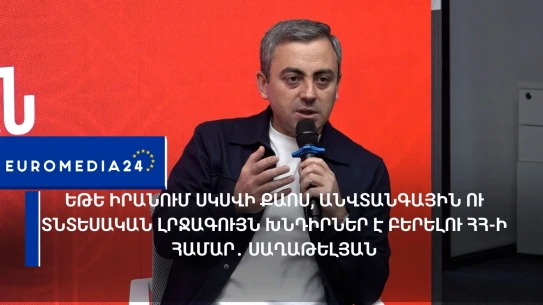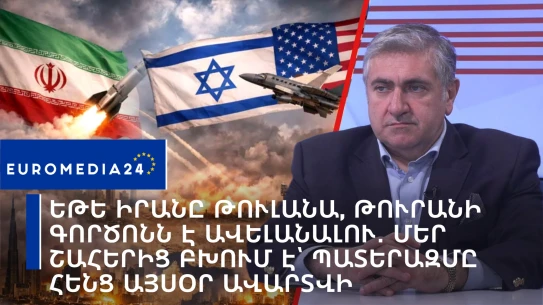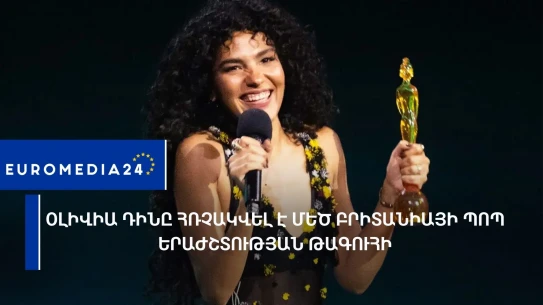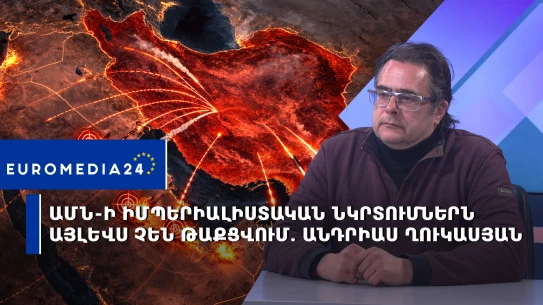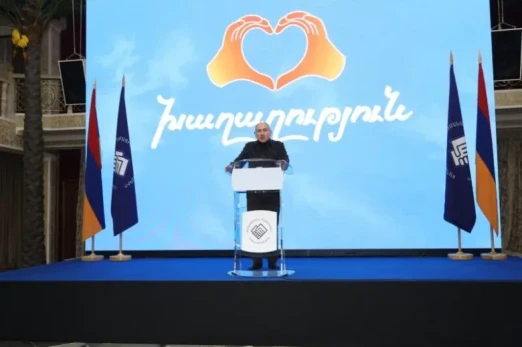"Fact" daily writes:
It has been more than forty years since the collective West waged a hybrid war against Iran. At this stage it becomes more active. Analyzing the possibility of involving Iran in the war, Vitaly Mangasaryan, the head of the "Henaket" analytical center, an expert on military issues, notes this. "At this stage, Israel is trying to exert pressure on the countries that enjoy Iran's support, on various regional forces. Recently, we see the attacks on Beirut, some actions were carried out by Israel in Syria, Hezbollah and Iran responded to them. This was predictable, because speaking with a powerful state like Iran is, I think, ineffective, to say the least. In case of any danger, Iran will give an adequate response. After the actions that took place during the inauguration ceremony of the president in Iran, that country patiently tried to reach some agreements through diplomatic channels for quite a long time. But, according to the Iranian side, those agreements were violated, and Iran retaliated against Israel, which at this stage, in my estimation, has made the score one-for-one. I don't think that Israel will go on an even bigger adventure, knowing full well that the response will be even stronger and more destructive," says Mangasaryan in an interview with "Pasti". He notes that there are rumors that this time Israel will try to strike Iran's nuclear facilities. objects. "I don't think Israel will take such a step. Iran has clearly presented its red lines in its political statements, and I don't think there will be much significant change in those red lines. They will respond as much as possible, which will lead to disastrous consequences for Israel. Naturally, not all states in the region will benefit from this "storm". It will have some effect on us as well. In a sense, we should anticipate such scenarios, try to position ourselves correctly to mitigate the possible effects on our country as much as possible," emphasizes our interlocutor. The impression that Iran avoids getting involved in a large-scale war is strengthened. "Iran is one of the few countries in the world that has thousands of years of statehood and the same diplomatic experience. I don't think that Iran will make rash decisions without calculating, without considering good and bad scenarios. They calculate all the risks. That is also the reason that for quite a long time there were reports in the media that Iran will strike today, tomorrow, and so on. The process took several months before that decision was made. From the public announcements, we note that Iran tried to settle the issues diplomatically, reached some agreements not to retaliate, and according to the statement of the Iranian side, the agreements reached with the conventional collective West were violated. It is also noteworthy that we did not record a statement by the same collective West denying Iran's statement. From this we can conclude that Iran tried to keep the agreements, but Israel violated them and went for counter strikes. This also led to the fact that Iran attacked Israel with great force, using a certain part of its arsenal, various missiles equipped with the latest technologies of its arsenal," adds the head of the Henaket analytical center. It is also interesting to study the involvement of Azerbaijan in the events taking place in the region. : On the one hand, there is an opinion that Azerbaijan will not dare to attack Iran, on the other hand, according to the opinion expressed earlier by our interlocutor, Azerbaijan owes Israel a debt after the 44-day war. "After the 44-day war, Azerbaijan-Iran "shootout" took place, even at the diplomatic level, various harsh statements were made. The Iranian side has stated on various occasions that it has reliable information that certain Israeli special units are stationed in Azerbaijan, which at least carry out reconnaissance operations from the territory of Azerbaijan. Also, for a period of time, "special" treatment was shown to Iranian cars when they passed through our territory, which is currently under the control of the Azerbaijani side. Drivers were arrested, etc. That "shootout" was mitigated, various meetings took place at the level of foreign ministers. The current tension in Iran-Azerbaijan relations was not accidental. Iran well understood that Azerbaijan owes Israel a return, and the most effective option is that Azerbaijan will provide Israel with a certain platform, especially in the form of their airports. After the 44-day war, the first thing Azerbaijan did was put the airports in order and put them into operation. All this is well understood by the Iranian side, and no matter how much Azerbaijan tries to maneuver and show that there is no danger to Iran, all this does not inspire confidence in the Iranian side. They understand and appreciate the risks. In this context, the analysis of the Iranian expert field in recent years leads to the following: the transfer of the Artsakh territories to Azerbaijan after the 44-day war did not benefit the Iranian side in a strategic sense. Iran understands that this battle has been lost in a strategic sense, and that is the reason why it declares its positions towards Syunik hard at this stage, it does not want to lose this battle again. In this regard, the position of the Armenian side is important, at least at this stage there is a great overlap between our and Iran's state interests, we must position ourselves correctly and work as effectively as possible in order to be able to solve the strategic issues facing our country as safely and effectively as possible," adds the military affairs expert. : There is no shortage of events around Armenia, and are the Armenian authorities responding proportionately to the existing threats? "We have serious problems with awareness of symmetry and the seriousness of the situation, starting from the propaganda field, what messages are sent from the authorities. There is an explosive situation in the region. In this situation, we ride bikes before or after important events in different countries. it is, to say the least, problematic and an element of frivolity. We do not use important platforms to raise the issues we face. Not only the government, the authorities should realize the degree of seriousness of this danger, but also different layers of our society, so that in the event of danger, at least, they will not be surprised, take the right direction, do not panic, assess the situation more soberly, so that we can get out of the crisis. It is very important that our different layers of society can assess the seriousness and degree of danger. All this should come from above, but unfortunately we don't have that awareness. Precedents are being created in the region that the states are not conducting ground operations against each other, that is, they are trying to capture a position, height, etc., but they are conducting operations against objects that are quite deep. These precedents are very dangerous, and we must realize that in order to take any action, Azerbaijan does not necessarily have to carry out a sabotage operation against this or that position or try to capture that position, etc., it can take action against various objects located deep in our settlements. and both the leaders and residents of the settlements should at least know what actions they should take in case of such scenarios in order to mitigate the consequences as much as possible", concludes Vitali Mangasaryan.
Lusine Arakelyan
















